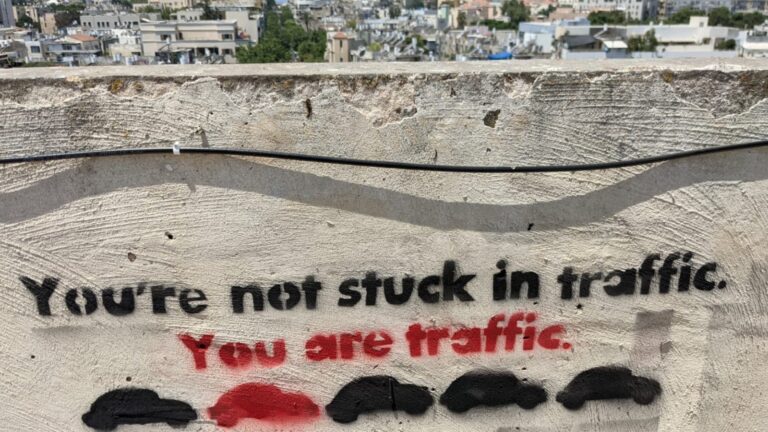Mobile apps like Waze and Google Maps help you avoid the worst traffic. But that is only half the battle. When you arrive at your destination, where will you find parking?
If you’re sick and tired of circling the block in pursuit of an open spot, so are a fast lane full of startups working on solving the “last mile” problem that plagues drivers in urban areas.
ISRAEL21c spoke to the CEOs of three of the leading Israel-based apps — all located in parking-deficient Tel Aviv and all using artificial intelligence to predict where the best chance of finding available parking will be.
Note the language: “best chance.” None of the companies can guarantee you’ll find parking on the street.
“Even if the technology enables you to know in real time where an open parking spot will be, it’s impossible to save it for the next driver. In a busy city, the spot will be gone in five to 15 seconds,” explains Zohar Bali, CEO of sPARK, which has developed the parking app Polly.
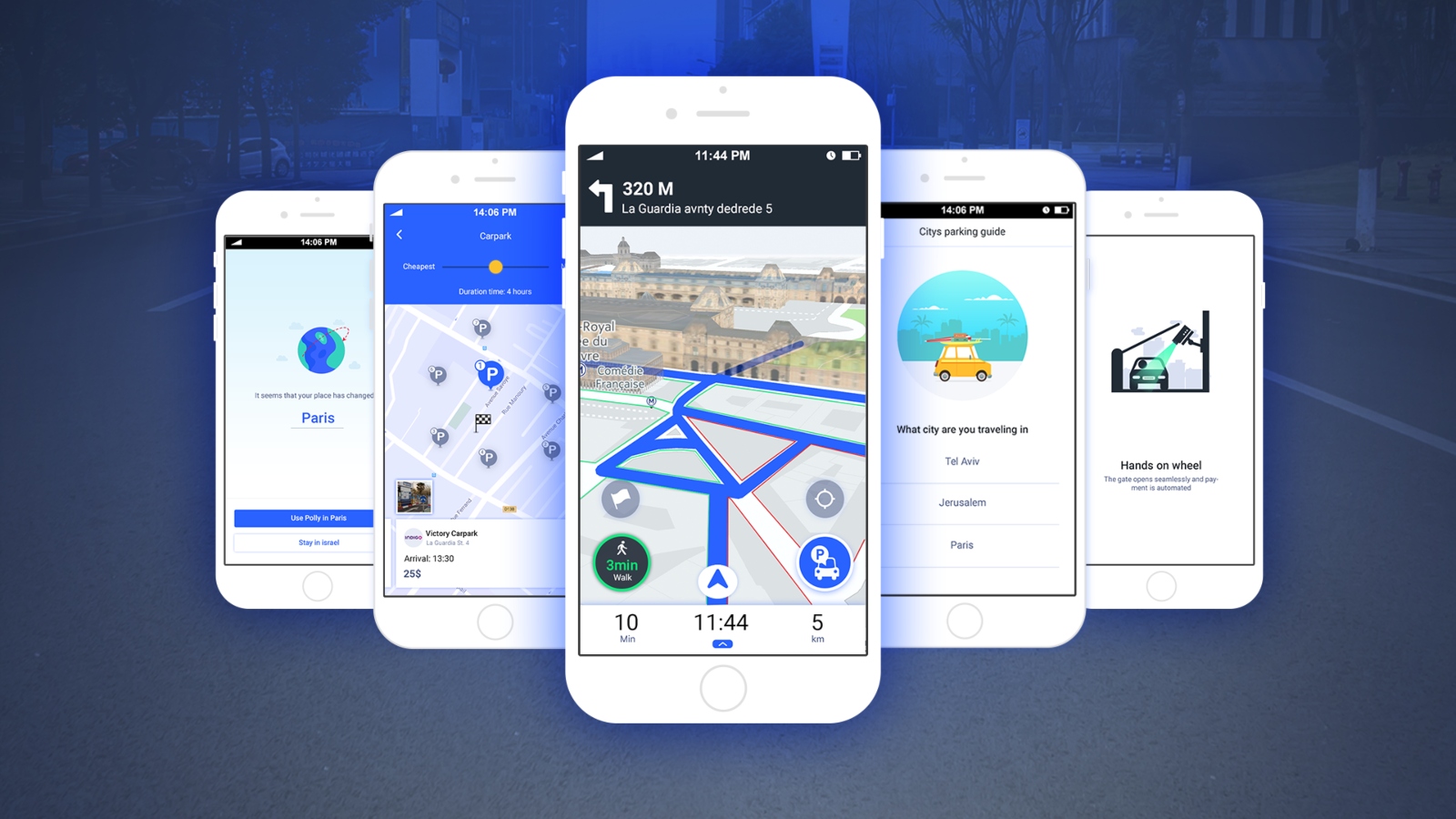
In many Western cities, it takes an average of 17 to 21 minutes to find parking on the street during the day, Bali adds. In Paris at 8 at night, that average can climb as high as 40 minutes.
In fact, some 30 percent of traffic in cities is generated by people searching for parking. Solving the parking conundrum could save both time, gasoline and traffic jams.
Using technology to locate an open spot, it turns out, is actually the easy part.
“Cars can report when you’ve turned the ignition on or off,” Bali explains. “Internet-connected parking meters can tell you when their time is up. Mobile phones can be used to sense movement.”
One of the earliest Israeli-made parking apps, Parko, did just that. The company’s app used GPS to sense a driver’s speed. When the vehicle stopped and the speed at which the phone was moving slowed to a comfortable “walking pace,” Parko assumed the user had parked. When Parko sensed the driver was returning in the direction of the parked car, the app would send a message to other drivers that a spot may soon open up.
Parko was acquired by Swedish competitor EasyPark in 2016.
Today’s best-in-class parking apps don’t rely on drivers because they’re masters of big data and artificial intelligence.
“We take data from many sources – cell-tower data, mobile-payment data, car-sharing data, data from sensors in the car and satellite imaging – and we combine it into predictions,” Eyal Amir, CEO of Parknav, tells ISRAEL21c.
From that, Parknav calculates a percentage. “Green means you have at least an 80 percent chance of finding a spot on a particular street. Anything below 40% we color red.”
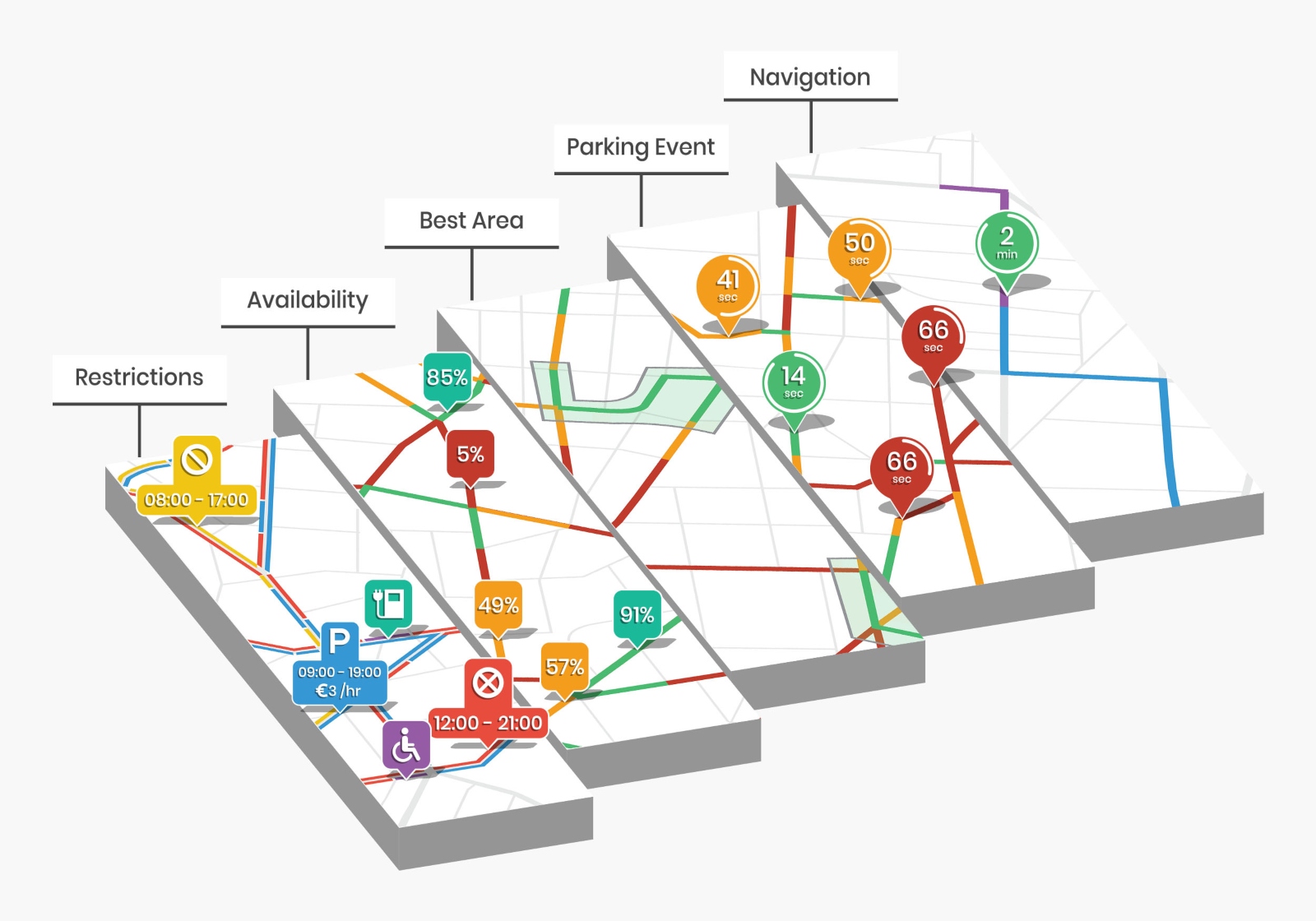
Parknav’s app – as with all the apps ISRAEL21c reviewed – has a built-in navigation tool to direct you to the most likely streets with parking. In Parknav’s case, there are two modes: a “heat map” you can use to navigate on your own, and automatic navigation that guides you to the green areas on the Parknav map.
Does Parknav actually know if there will be spots available? “No, it’s a best guess,” Amir admits. “But it’s a precise guess. We guarantee at least 80% precision to our customers.”
A third Israeli parking startup, ParKam, claims to have 99% accuracy because it sees the spots in real-time.
“We use existing camera infrastructure,” the company’s CEO, Asaf Naamani, tells ISRAEL21c. “If we need to add more cameras, we can place them on top of existing poles. That makes it cost effective to customers.”
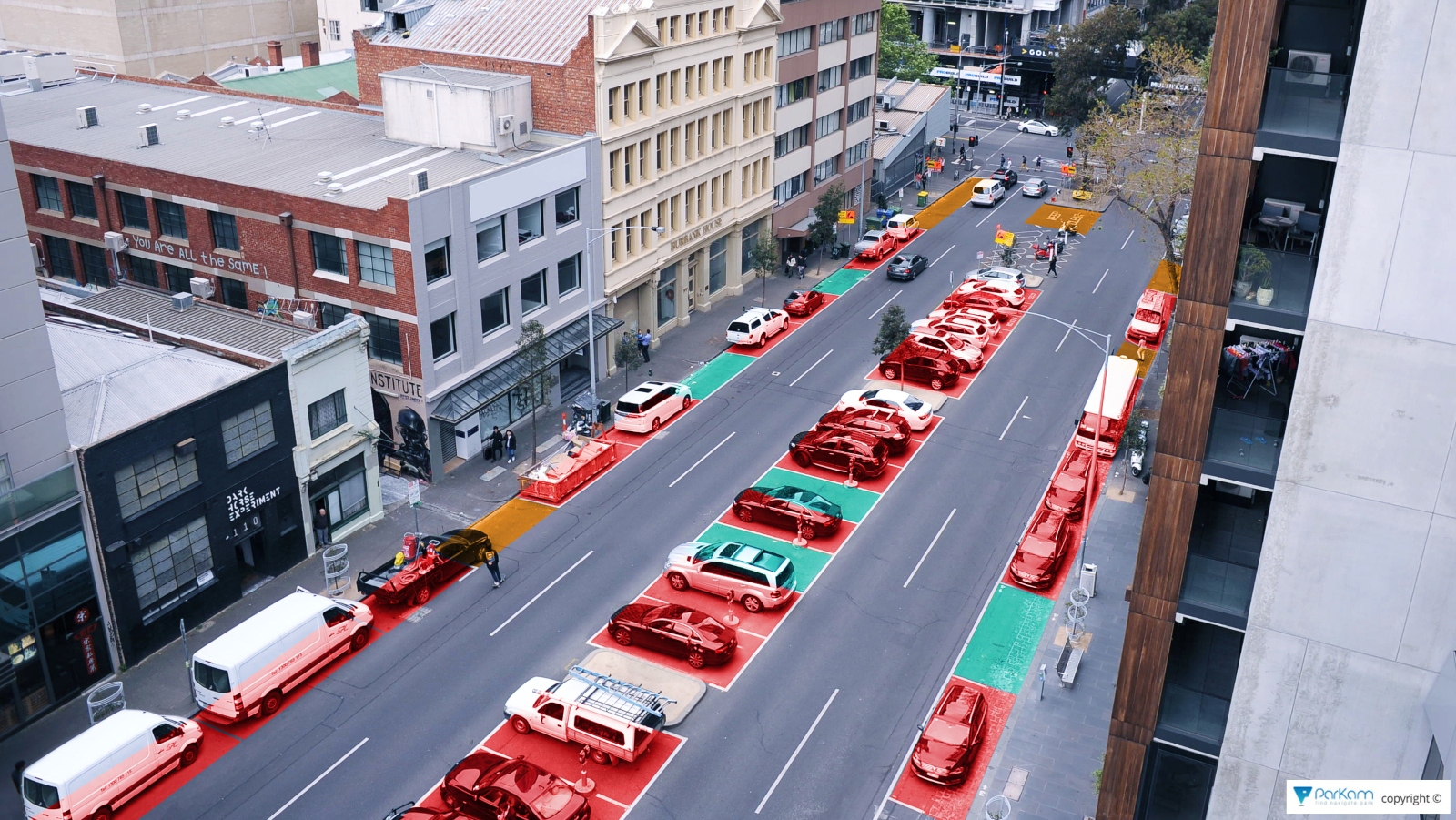
The cameras don’t have to be high quality, Naamani adds. “Our algorithms can extract data even with just a few pixels per spot.” Naamai claims that ParKam’s system is all-weather ready. “We tested it with snow in Moscow and desert in Israel.”
Naamani stresses that ParKam is compliant with the European Union’s GDPR data privacy standards and that the company does not keep any of the images output from the cameras it uses, just their GPS coordinates. “We’re not Big Brother,” he says. “We’re the good brother.”
Although none of these apps can hold a parking spot for you, ParKam uses AI to “predict which spots will remain available by the time a driver arrives. Our parking recommendation layer learns the behavior of a spot,” Naamani says. Such as: “what is its behavior between 9am and 10am on a Tuesday?” AI can also analyze the behavior of drivers looking for parking spaces at any given time.
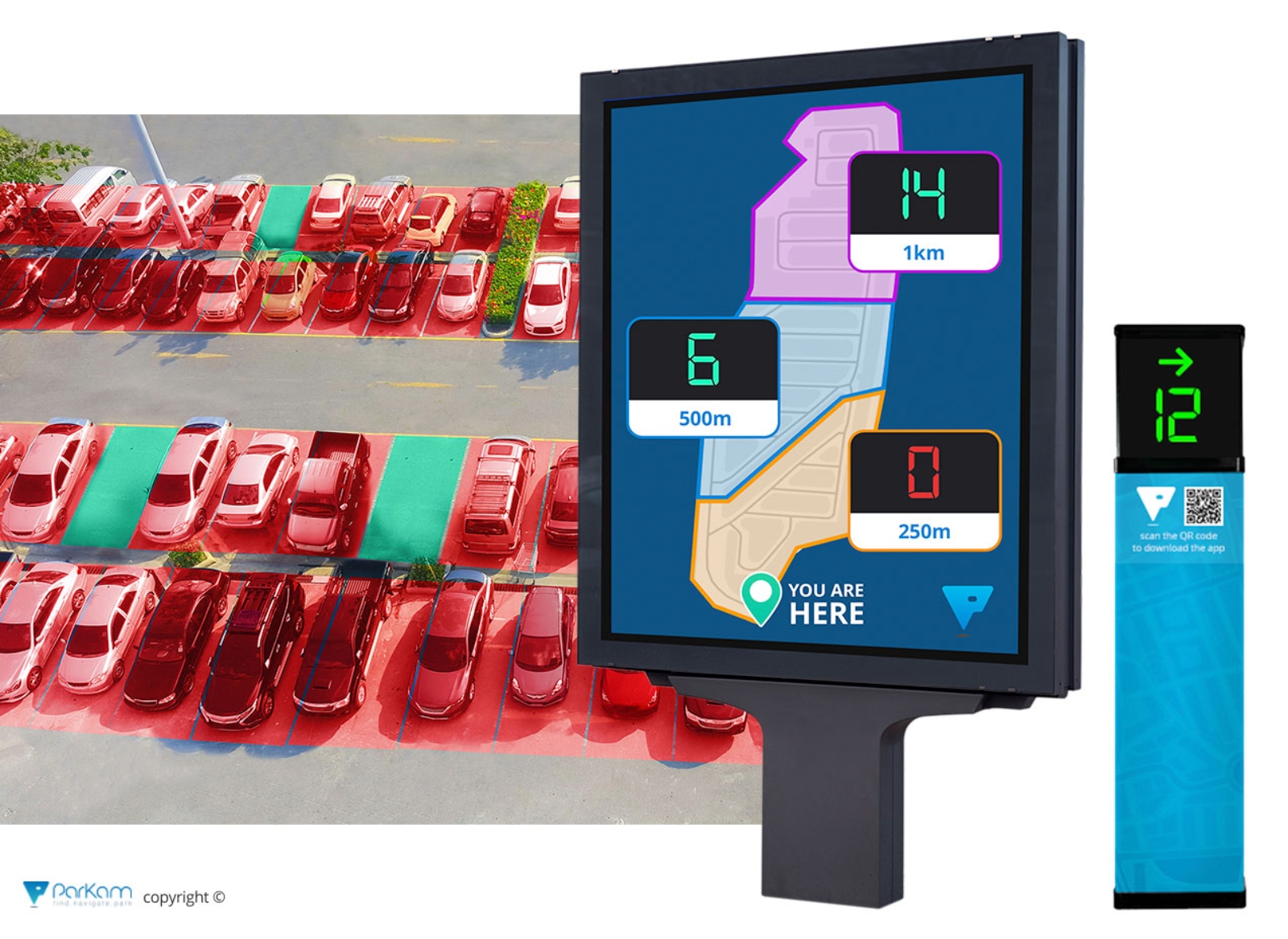
If on-street parking is unlikely, ParKam will direct you to a paid parking lot. The company has a partnership with Ahuzat Hof, which operates parking lots across Tel Aviv.
Polly has its eye on parking lots, as well.
Polly’s interface provides personal real-time parking recommendations similar to Google Map’s options for car, bus, bike or walking. Polly’s algorithm can tell you, for example, that, at this hour, your chance of finding on-street parking is 22% if you circle for 11 minutes. Or you can choose a parking lot at $1 an hour that’s a three-minute walk from your destination and if you book in advance, the app will give you a 30% discount.
If you choose to circle, Polly maps out a route that takes you on the streets most likely to have parking (one-way streets are a better bet because there’s potential parking on both sides, for example), ending in the parking lot closest to your destination.
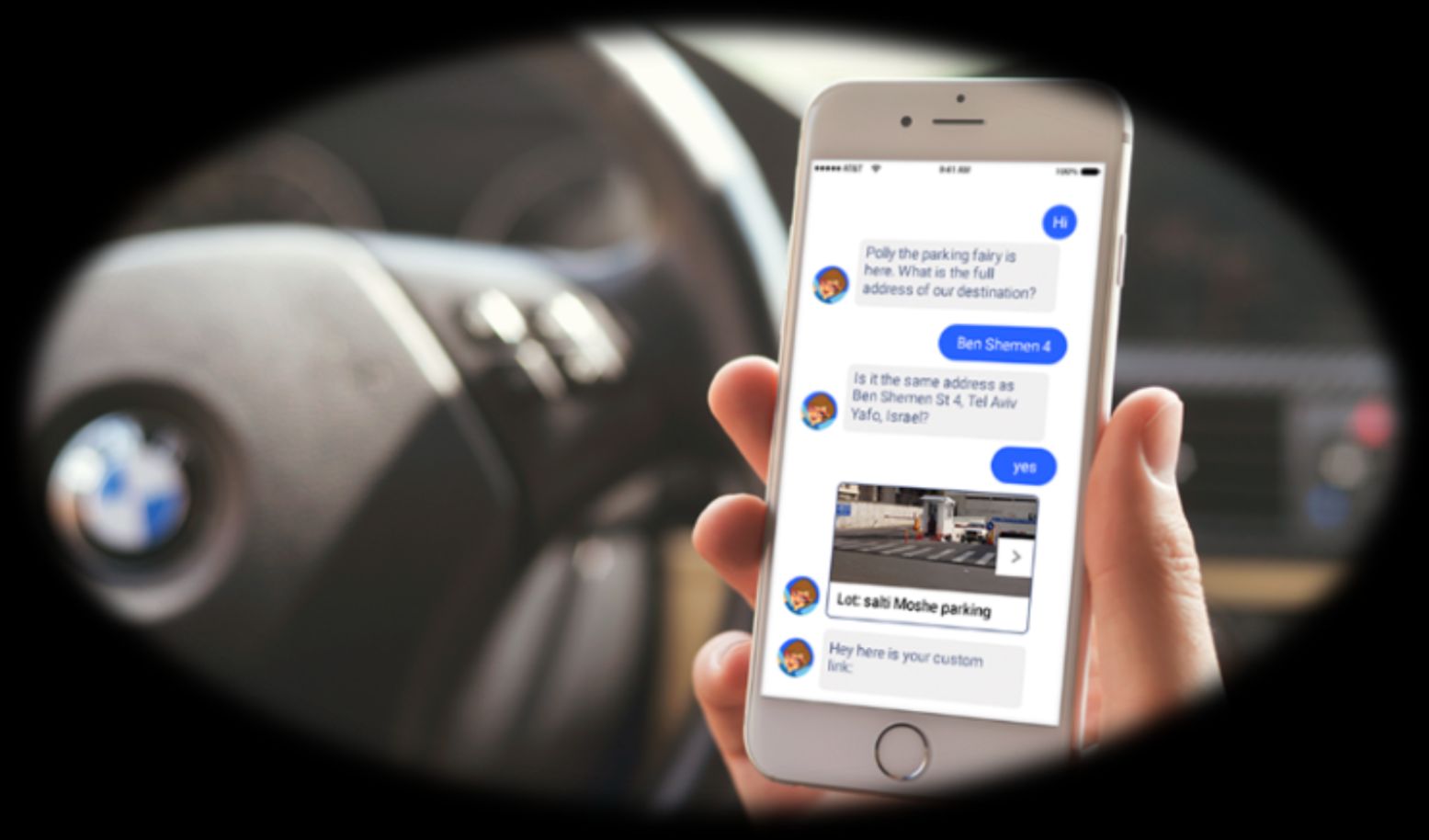
Building a successful parking app is not just about AI and amassing data from the cloud. It also involves sending workers into the field to map indicators such as parking-restriction signage and temporary construction zones.
While all three of these companies offer apps that consumers can download for free, the real prize is selling their data to players in the mobility space.
Parknav is working with BMW and Deutsche Telekom; the latter offers its own app dubbed Park and Joy that uses Parknav’s data and AI and a Deutsche Telekom-designed interface. Parknav’s app is live in 240 cities in Europe and the United States. The 50-person company has raised money from the Village Global venture capital firm, which includes tech luminaries including Mark Zuckerberg, Jeff Bezos and Bill Gates.
Polly has a deal with OPnGO, the digital arm of Indigo, one of the largest car-parking companies in the world. Polly has mapped 65 cities, mainly in France, Belgium and the Netherlands. The 10-person company has raised $4 million.
ParKam’s app is operating – in addition to Tel Aviv – in The Netherlands, Australia and in Rio de Janeiro and Sao Paulo, Brazil. The 27-person company is currently raising a second round led by existing investor Maverick Ventures.
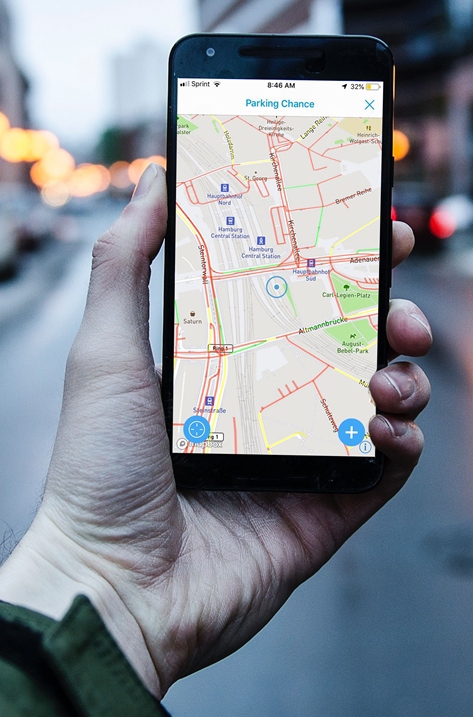
Further features in the future
One stumbling block that none of the companies has been able to jump over: direct integration with the consumer navigation leaders, Waze and Google Maps.
“We’d love to integrate with them,” says Amir. “But as in a marriage, you need both sides. They are probably working on something like this. But they don’t specialize in what we do.”
ParKam’s Naamani says that he too would be happy to cooperate with Waze and Google. In the meantime, he suggests drivers do their main navigation with those bigger companies and then switch to ParKam “for the last mile.”
Eyal Amir of Parknav says that parking data is not the end game for most apps in the space. “In 10 to 20 years, you’ll be able to see if a Starbucks is open, if there is a table available with four seats outside and if they didn’t run out of almond milk yet,” Amir says. “All of those things will go into your device and your car will make decisions for you.”
Anagog hit upon that realization a few years ago. The company originally used mobile device sensors and data from a collaboration with Israeli parking payment app Pango to predict when an on-street space would become free.
Anagog now works with clients in the retail, banking, automotive and telecommunications spaces to build behavioral profiles of users based on their mobile phone usage with no personal data leaving the device.”Parking is an interesting use case of our AI engine but is no longer a major focus,” a company spokesperson told ISRAEL21c.
Are parking apps an exclusively big city niche? Not at all, says Amir, who before starting Parknav was a professor of computer science at the Urbana-Champaign campus of the University of Illinois. Residents of smaller cities just experience the issue differently.
“In cities, we may need to park half a mile away or come back home by 7pm because we know that at 9pm there will be no parking at all,” he says. “For smaller cities, if you have to spend five minutes looking or park three blocks away, that’s a problem for them.”
Clearly, there is plenty of upside for Israeli startups trying to decipher the seemingly intractable parking enigma.















